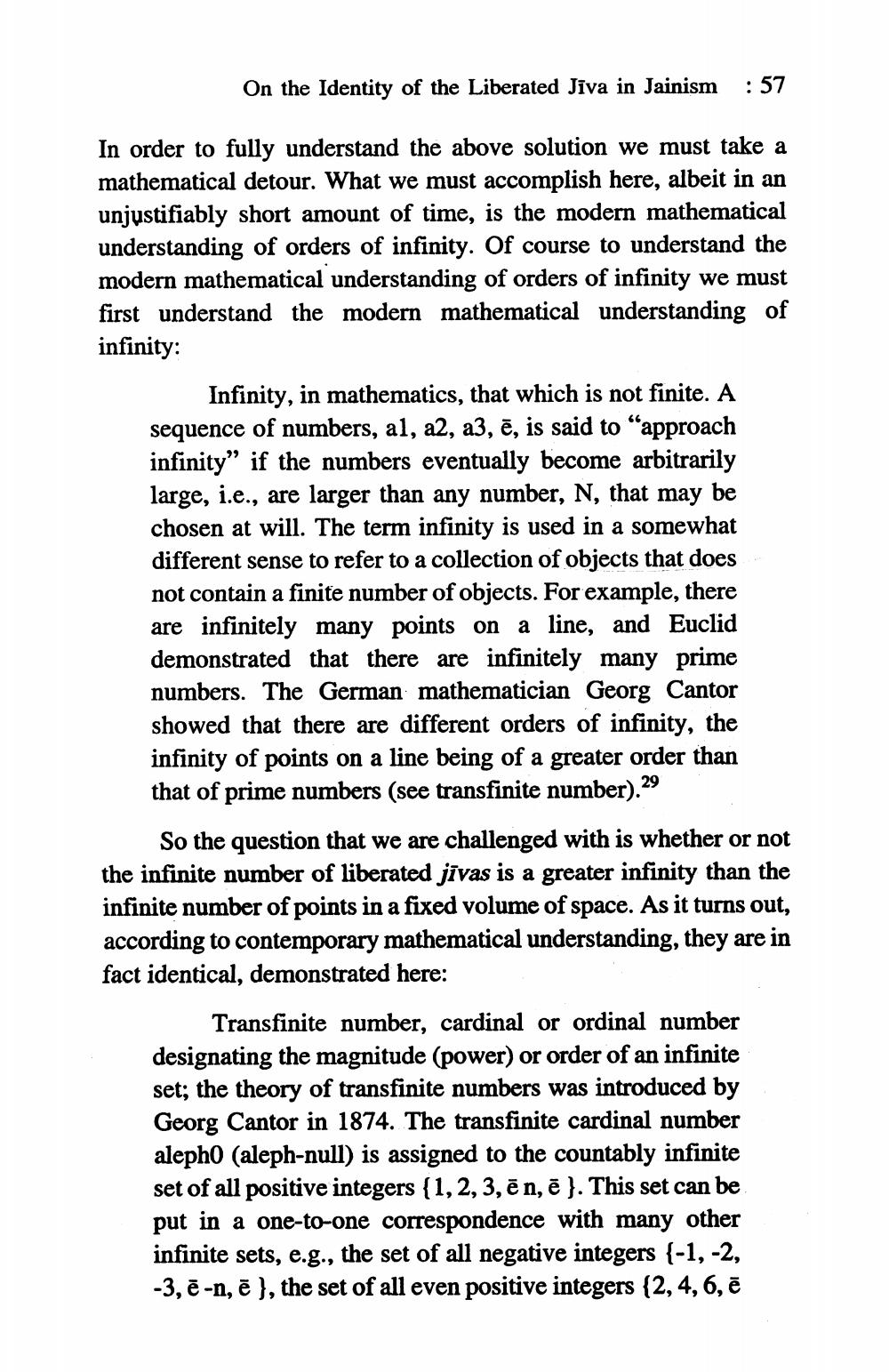________________
On the Identity of the Liberated Jīva in Jainism
: 57
In order to fully understand the above solution we must take a mathematical detour. What we must accomplish here, albeit in an unjustifiably short amount of time, is the modern mathematical understanding of orders of infinity. Of course to understand the modern mathematical understanding of orders of infinity we must first understand the modern mathematical understanding of infinity:
Infinity, in mathematics, that which is not finite. A sequence of numbers, al, a2, a3, ē, is said to "approach infinity” if the numbers eventually become arbitrarily large, i.e., are larger than any number, N, that may be chosen at will. The term infinity is used in a somewhat different sense to refer to a collection of objects that does not contain a finite number of objects. For example, there are infinitely many points on a line, and Euclid demonstrated that there are infinitely many prime numbers. The German mathematician Georg Cantor showed that there are different orders of infinity, the infinity of points on a line being of a greater order than that of prime numbers (see transfinite number). 29
So the question that we are challenged with is whether or not the infinite number of liberated jīvas is a greater infinity than the infinite number of points in a fixed volume of space. As it turns out, according to contemporary mathematical understanding, they are in fact identical, demonstrated here:
Transfinite number, cardinal or ordinal number designating the magnitude (power) or order of an infinite set; the theory of transfinite numbers was introduced by Georg Cantor in 1874. The transfinite cardinal number aleph0 (aleph-null) is assigned to the countably infinite set of all positive integers {1, 2, 3, ē n, ē }. This set can be put in a one-to-one correspondence with many other infinite sets, e.g., the set of all negative integers (-1, -2, -3, ē -n, ē }, the set of all even positive integers (2, 4, 6, 7




